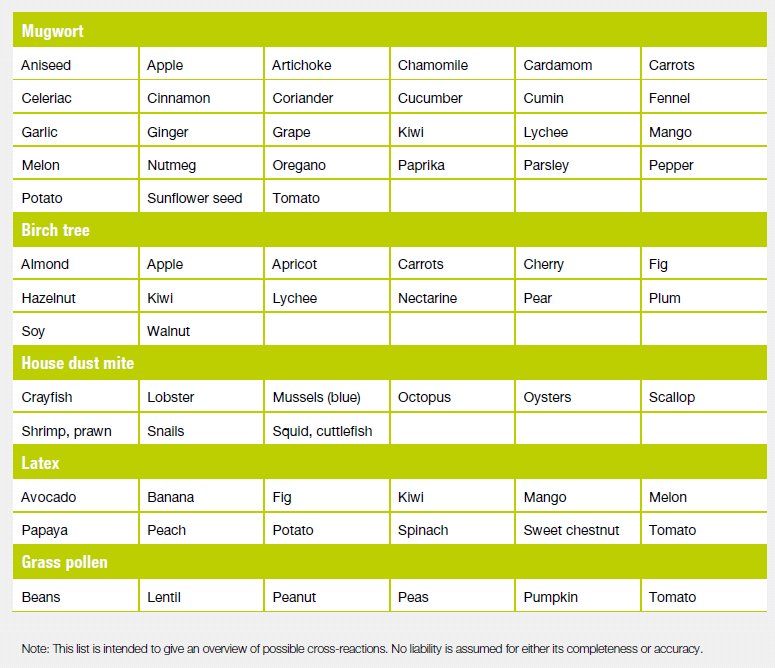Spring is here and, with it, hay fever – we get a runny nose, sneeze, and feel groggy. So why does a blissful bite into an apple suddenly cause tingling, shortness of breath or sneezing? The trigger may be cross-reactivity.
How does this happen?
The immune system protects our bodies against germs. If viruses or other harmful substances get into our body, our body triggers an immune reaction and destroys the pathogens. Allergies occur when the immune system fights harmless substances such as pollen and food. The body thinks the proteins contained in these substances are dangerous and produces antibodies to fight them.
Cross-reactivity occurs when the antibody recognizes and fights not only the protein for which it was originally produced, but also proteins that belong to other substances. This can happen because some pollen, animal, and food proteins have very similar structures to one another. The proteins in birch pollen are very similar to those found in an apple. If you have a birch allergy, this is why you may develop an allergic reaction when you bite into an apple. Roughly 60 percent of people with pollen allergies suffer from these types of pollen-associated food intolerances.
When is cross-reactivity important?
Cross-reactivity can be important if you have a delayed food allergy. If you use a blood test like ImuPro to detect whether you have a delayed food allergy, you may learn that you have a reaction to lobster even though you have never tried lobster before.
This is not uncommon and is also not due to a false reading. Cross-reactivity can cause reactions to occur to foods that you have never eaten. Lobster, mussels, shrimp, and other seafood are very similar to the allergen of the house dust mite. If you have an allergy to house dust mites, your immune system will produce antibodies. These antibodies do not only “match” the proteins of house dust mites, but also proteins found in lobster, oysters, and other seafood. The blood test measures these antibodies. So you can also have a reaction to lobster without ever having eaten lobster. It is important that you avoid seafood for a while in this case, or find out what is triggering the cross reaction and avoid that. In this case, house dust mites may be responsible. In some cases, changes in diet have even caused hay fever problems to get better.
Some examples of cross reactions:
The post Hayfever & Cross Reactions appeared first on ImuPro.

No comments:
Post a Comment